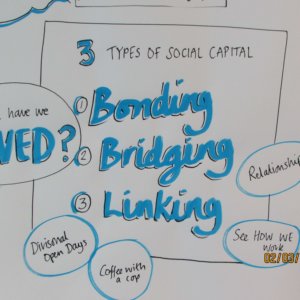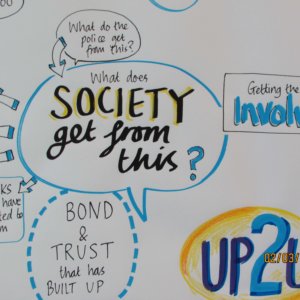
Building Social Capital
MutualGain helps organisations and communities to build something called social capital. In short, social capital means:
Trust
How people trust each other and the different organisations working on their behalf
Norms
The sorts of behaviours, attitudes and values that individuals or groups of individuals might display
Networks
The connections between people and the way in which they can easily call on each other to support and help when needed
Building social capital requires the development of strong relationships. Organisations such as Councils, NHS Organisations, Housing Organisations and the Police have a responsibility to facilitate and nurture strong community relationships so that communities share their strengths, and build on those to develop caring and supportive communities.
As people build relationships, they form social organisations, friendships or networks and as they get to know each other and deal with issues and problems they start to build trust.
Robert Putnam, in his book Bowling Alone (2000), credits a 1916 paper by L.J. Hanifan as the first recorded instance of the term social capital:
those tangible assets [that] count for most in the daily lives of people: namely goodwill, fellowship, sympathy, and social intercourse among the individuals and families who make up a social unit
If you would like to know more about how you can increase social capital, increase active citizenship, and reduce dependency and demand on your services, then please do get in touch: info@mutualgain.org.


